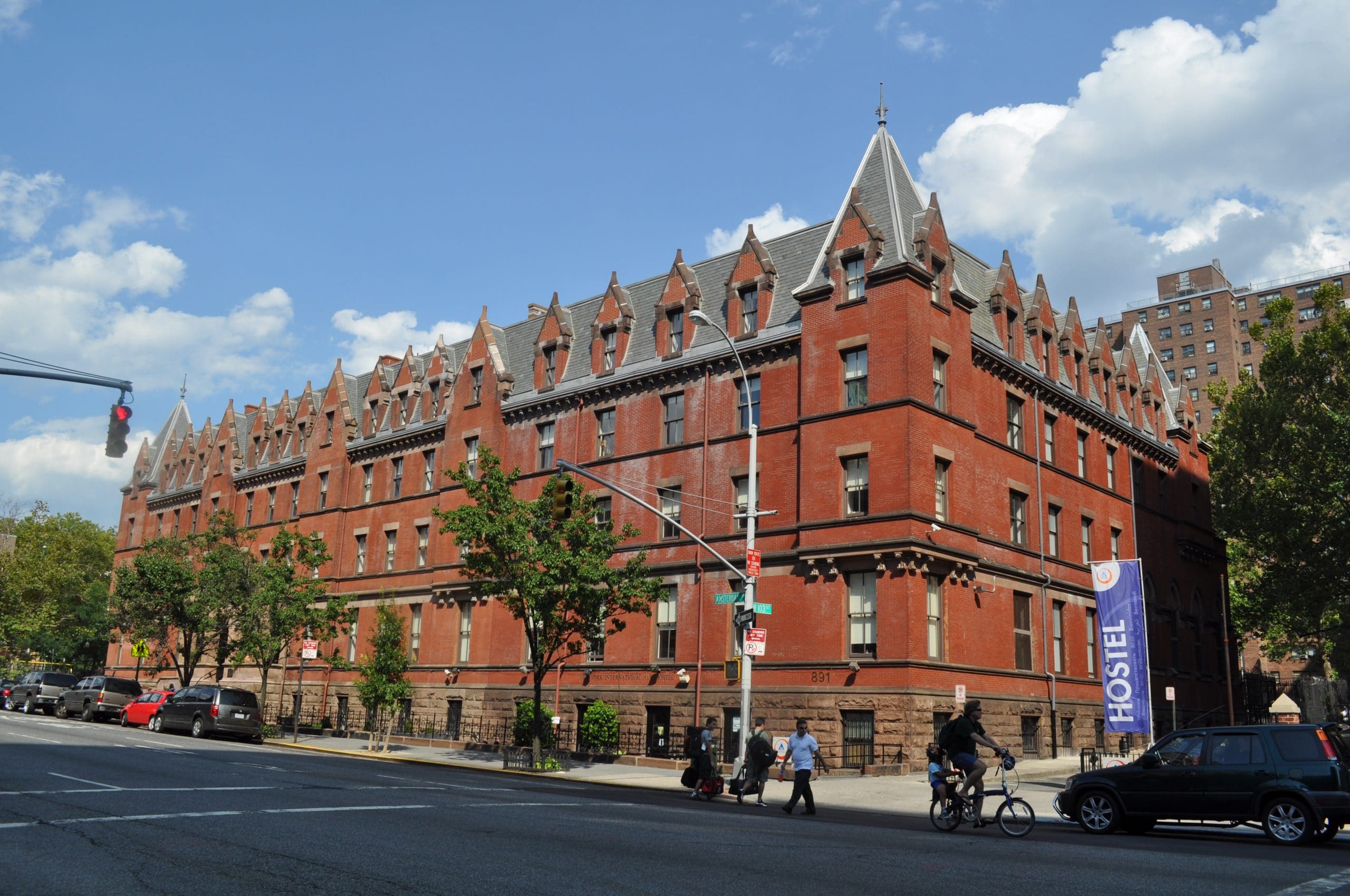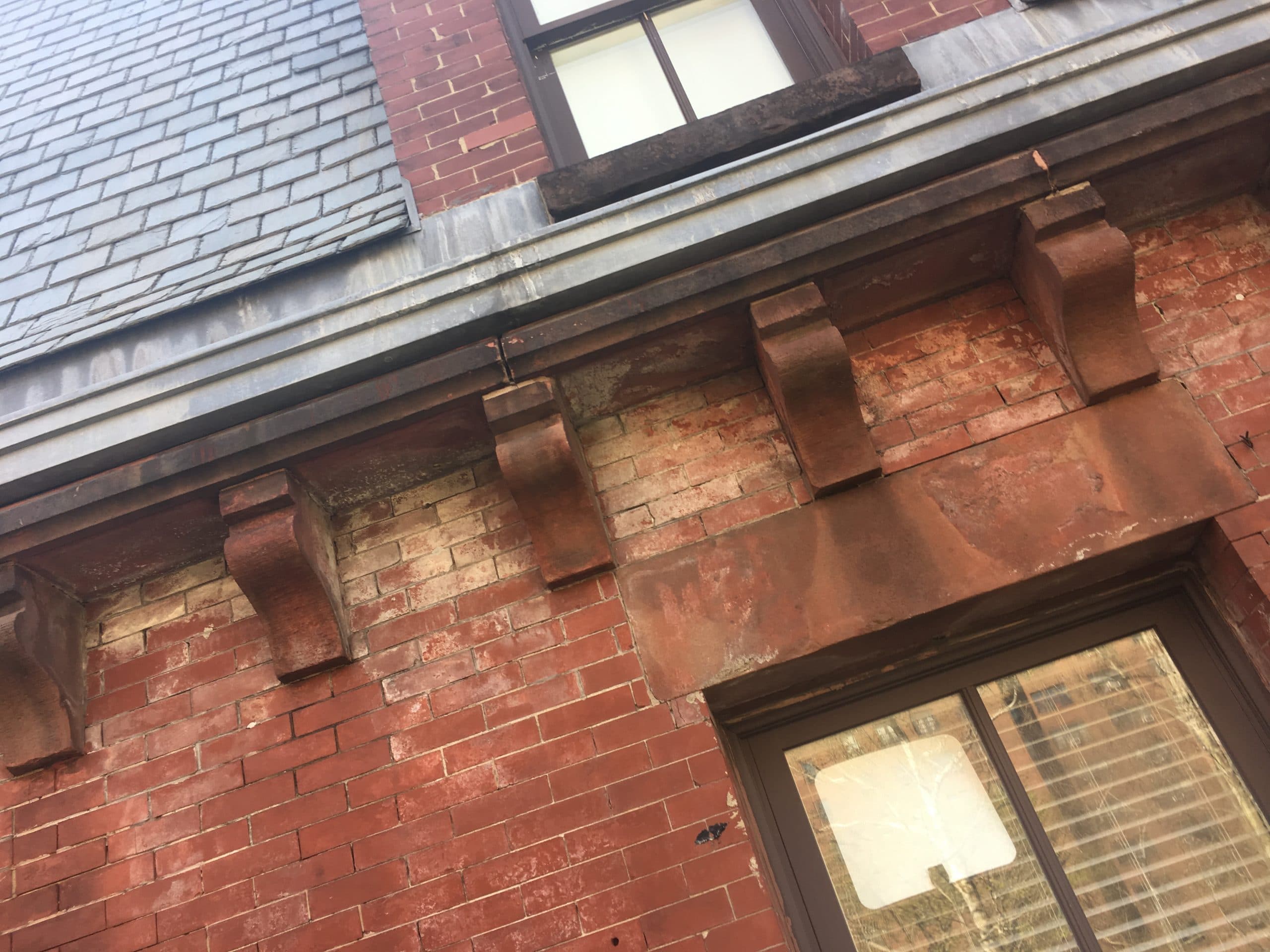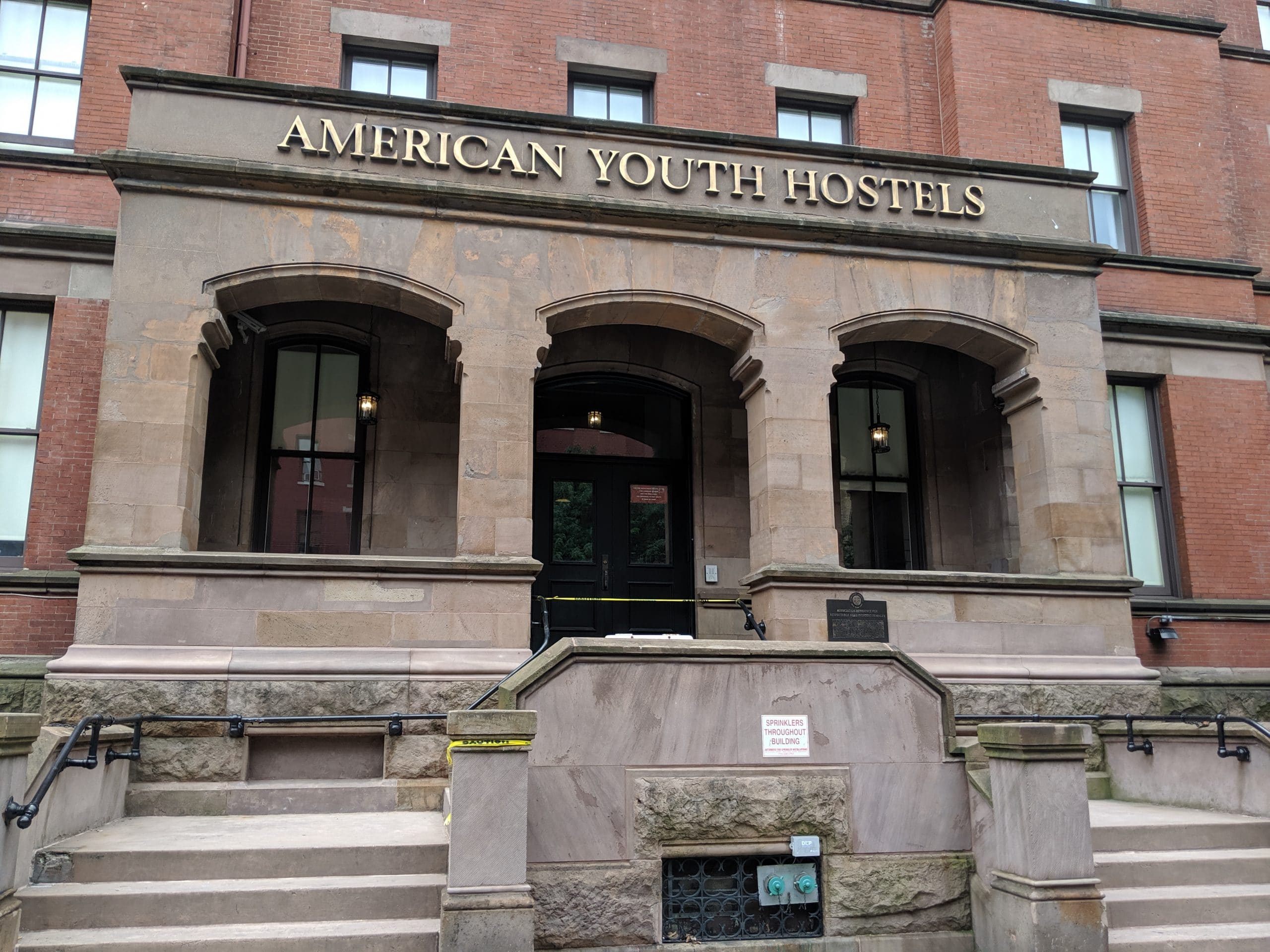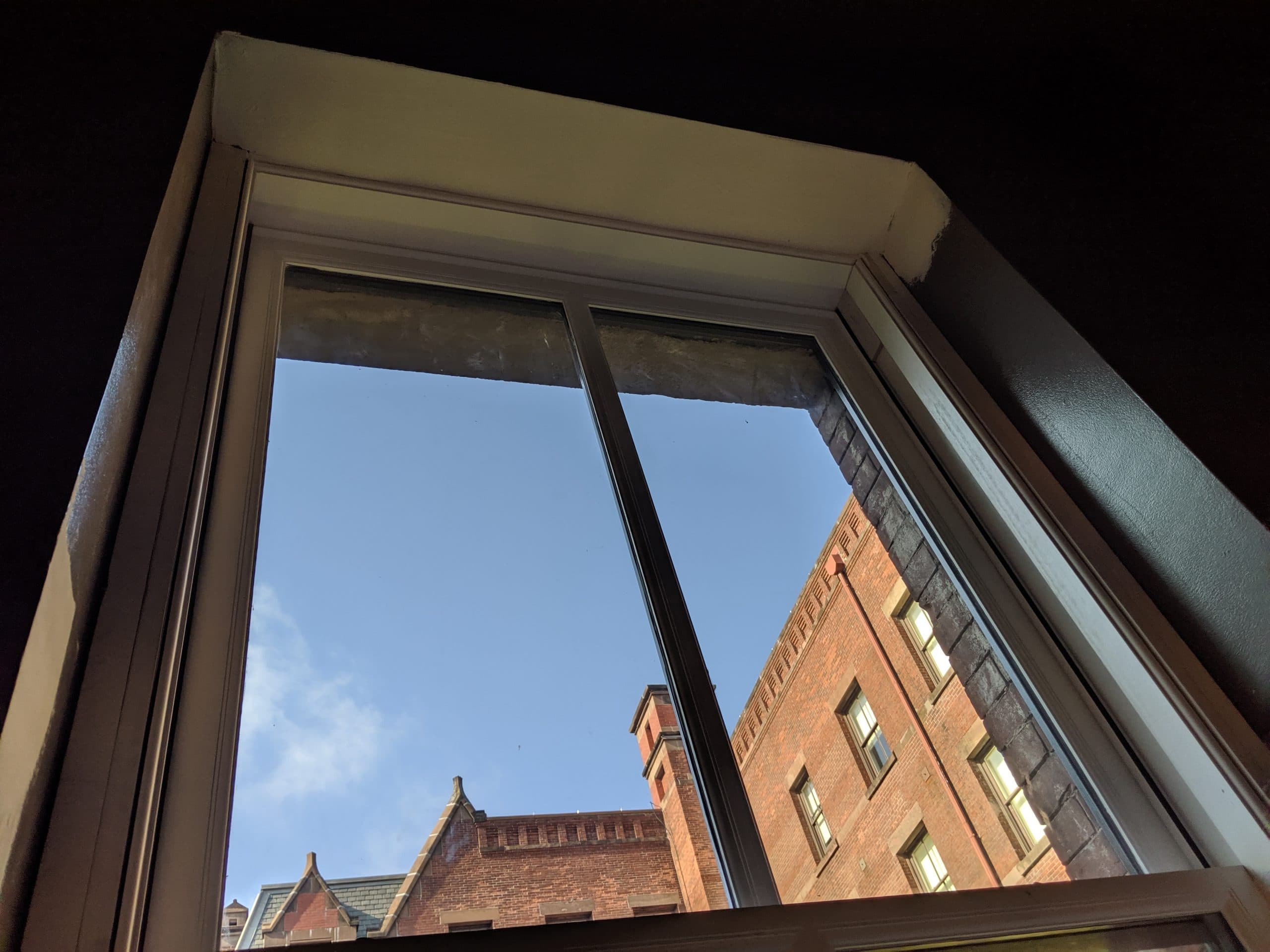Easton Architects provided an Existing Conditions Assessment, exterior restoration, and select interior renovations of the Richard Morris Hunt building at 891 Amsterdam Avenue. Originally designed as a home for wealthy widows whose husbands had been killed in war, the building today operates as a large hostel. The oldest portion dates to 1881, with a later 1909 addition by the architect Charles A. Rich.
The Existing Conditions Assessment found the masonry to be in need of complete repointing, as past restoration work had used improper mortar and resulted in severe efflorescence. In addition, Easton Architects carried out a window survey encompassing all 285 windows of the building. It was found that roughly 70 would require full replacement and the majority of those remaining would be restored.
The project was divided into four phases to allow the hostel to remain optimally operating. All facades were completely repointed, and replacement masonry units were provided where required. Deteriorated brownstone moldings and rock-face were given a silicate coating and tooled to match the original texture, color, and profile. New windows replaced the deteriorated units and the rest were restored. Both the North Terrace and entry portico had their failing waterproofing materials removed and replaced with a cold fluid-applied membrane. The North Terrace was provided with a new pedimented paver surface and a new cast-iron railing. The doors to each terrace were also replaced. The building is an individual New York City landmark; therefore, all exterior and window restoration work was coordinated with the New York City Landmarks Preservation Commission.
Select interior restoration occurred in the ballroom on the south side of the building which had experienced plaster damage due to improper waterproofing on the South Terrace. The plaster was restored in concurrence with the first phase of the exterior restoration project.




